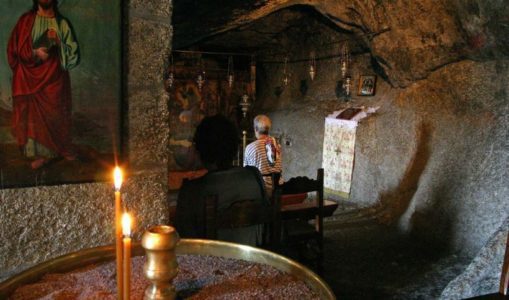Saint John and the Apocalypse
Saint John, the author of the Book of Revelation was John the Apostle. He was one of the Twelve Apostles of Jesus. Among the disciples of Jesus he was in fact among the intimates, with Peter and his brother James, who accompanied the Jesus on the most important occasions, such as when he resurrected Jairus’ daughter, in the Transfiguration on Mount Tabor or at the foot of the cross next to Mary, whom he took care of, having been entrusted to him by Jesus from the cross. He was the son of Zebedee and Salome and brother of James, son of Zebedee, another of the Twelve Apostles. Christian tradition holds that he outlived the remaining apostles, all of whom suffered martyrdom and ultimately died of natural causes “in great old age in Ephesus” at the beginning of the second century.
The Church Fathers consider him the same person as John the Evangelist. Because of his preaching and the testimony of Jesus. he has been exiled on Patmos, where he “heard a great voice” instructing while writing the book, the Apocalypse the last chapter of the Bible.
Book of Revelation
Simply known as Revelation or by a number of variants expanding upon its authorship or subject matter. It is the final book of the New Testament and occupies a central part in Christian eschatology. It completes the prophetic information regarding God’s plan and describes in great detail the future events of humanity. Basically the last book of the Bible, perhaps the most important regarding prophecies and understanding God’s plan. Written in Koine Greek, its title is derived from the first word of the text, apokalypsis, meaning “unveiling” or “revelation”. The author of the work identifies himself in the text as “John”, John of Patmos.
The obscure and extravagant imagery has led to a wide variety of interpretations: historicist, preterist, futurists, idealist or symbolic, all lead to allegory of the spiritual path and the ongoing struggle between good and evil.






